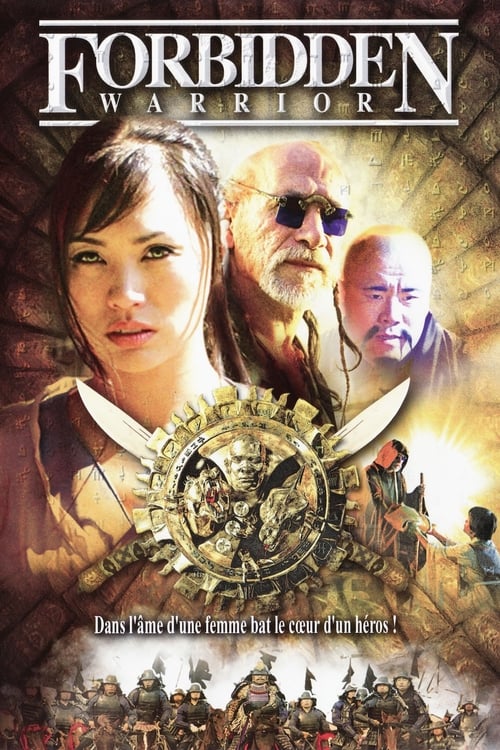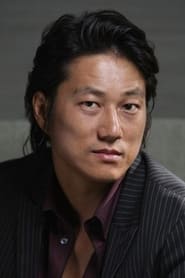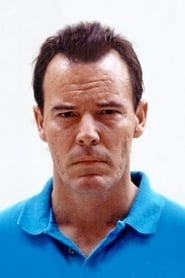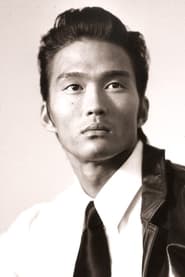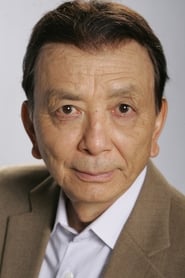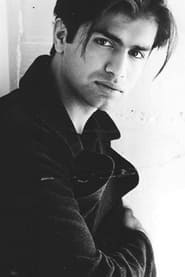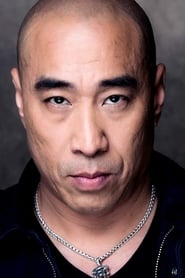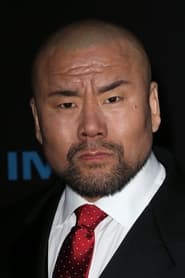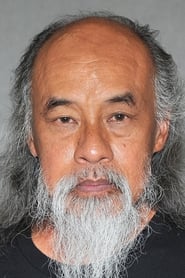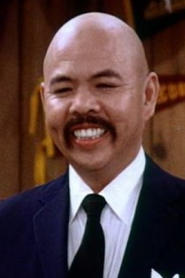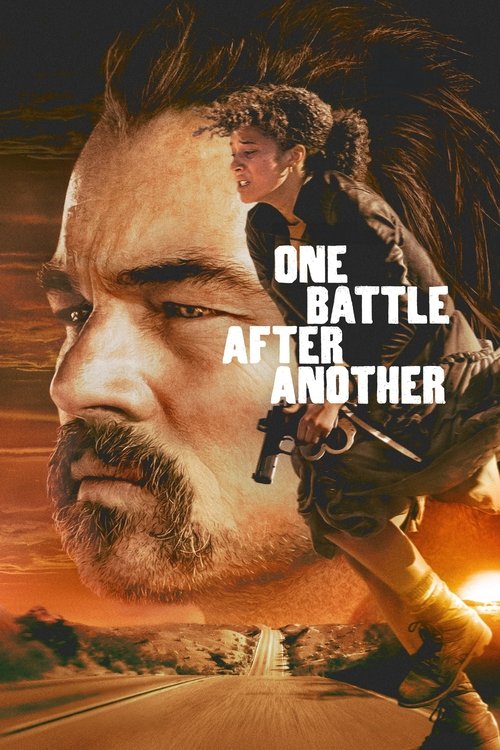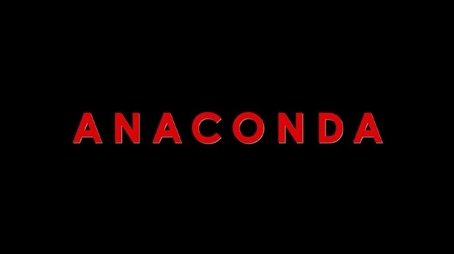
Ask Your Own Question
What is the plot?
In a shadowed age, long before recorded time, the world trembles under the looming threat of two rival clans: the Khans and the Marajis. The film opens in a misty, ancient land where power is measured by bloodlines and mystical forces. Che Khan, a ruthless warlord with cold ambition burning in his eyes, refuses to leave the fate of his clan to chance or prophecy. He learns of a newborn Maraji child, a baby girl whose survival threatens his dominion. Determined to snuff out this threat, Che Khan orders the infant's murder, believing this act will secure his clan's supremacy forever.
But fate intervenes. The baby, named Seki, escapes death through unknown protectors and is spirited away into exile. The screen paints a stark contrast between the dark, violent world of the Khans and the peaceful, hidden sanctuary where Seki grows. Years pass in a remote mountain retreat, shrouded by mist and ancient trees, where Seki lives under the watchful eye of Ajis-Aka, her blind sifu and mentor. Ajis-Aka, played with quiet gravitas by Tony Amendola, is a master of both martial arts and mystical knowledge. He trains Seki in the art of self-defense and the secret powers that lie within her, preparing her for the destiny she must face.
Ajis-Aka's training scenes are intimate and intense. In one moment, he tells Seki, "You are the only one who can wield the Book. Without you, the world falls into shadow." His voice is steady but heavy with the weight of prophecy. Seki, portrayed by Marie Matiko, listens with a mixture of fear and determination. She is no ordinary woman; she is the Chosen One, the last hope against the emperor's dark designs.
Meanwhile, far from the mountain sanctuary, the emperor's fortress looms -- a fortress of stone and iron, cold and forbidding. It is here that Che Khan and his sons, Doran and Locust, plot to find and destroy Seki. Doran (Sung Kang) and Locust (Karl Yune) are fierce warriors, embodiments of their father's ambition and cruelty. They are sent out on a relentless quest to capture or kill Seki, their journey marked by brutal skirmishes and deadly confrontations.
The tension escalates as Seki's exile is shattered by the arrival of the emperor's sons. The first confrontation is sudden and violent. In the shadowed forest near the mountain retreat, Doran and Locust ambush Seki, but she fights back with a blend of martial skill and emerging magic. The air crackles as she summons power from the ancient Book of Spells, a tome bound in dark leather and glowing with runes only she can command. "You will not take me," she declares, her voice steady despite the danger.
Several of Che Khan's henchmen fall in these battles, their deaths swift and merciless, though their names fade into the background of the larger conflict. The film does not linger on these minor casualties but focuses on the growing stakes between the main players.
As Seki battles her pursuers, Ajis-Aka reveals more of the prophecy: the Book of Spells is the key to controlling the fate of the world. It was created by ancient sorcerers and can only be wielded by one with a pure heart and unbreakable will -- Seki herself. The emperor's desire to seize the Book is driven by his lust for absolute power, and Che Khan's alliance with him is a dark pact that threatens all life.
In a pivotal scene, Ajis-Aka imparts a final lesson: "The Book is not just power; it is responsibility. If it falls into the wrong hands, all is lost." His words echo as Seki steels herself for what lies ahead.
The climax unfolds at the emperor's fortress, a place of stone battlements and shadowed halls. Seki infiltrates the fortress under cover of night, her every step a blend of grace and deadly intent. The atmosphere is thick with tension; torches flicker against the cold walls as guards patrol, unaware that the Chosen One walks among them.
Inside, Seki confronts Doran first. Their duel is fierce, a dance of blades and magic. Doran sneers, "You think you can stop us? You are nothing but a girl playing with powers beyond your ken." But Seki's resolve is unshaken. She counters with a spell that sends Doran crashing through a stone archway, his death brutal and final.
Next, Locust challenges her. Their fight is even more brutal, fueled by hatred and desperation. Locust's strikes are vicious, but Seki's training and the Book's power give her the edge. With a final, powerful incantation, she strikes him down, his body collapsing in the shadowed hall.
The emperor himself emerges, a towering figure cloaked in dark robes, his eyes burning with malice. He reveals his ultimate plan: to use the Book to enslave all clans and rule the world with an iron fist. "You cannot stop what is destined," he growls, advancing on Seki.
But Seki stands firm. Drawing on every lesson from Ajis-Aka and every ounce of her own strength, she summons the Book's full power. The room fills with blinding light as she chants an ancient spell. The emperor screams as the magic overwhelms him, his body dissolving into shadow.
With the emperor defeated, Seki faces a final choice. The Book's power is immense but dangerous. She could use it to rule or destroy it to prevent future misuse. In a moment heavy with emotion, she closes the Book and casts it into a deep chasm beneath the fortress, its glowing pages swallowed by darkness.
The film closes with Seki standing atop the fortress walls, dawn breaking over the peaceful lands. Her eyes are fierce but hopeful. She whispers, "This is only the beginning." The prophecy fulfilled, the clans' ancient feud is ended, but the future remains uncertain.
Every major character's fate is sealed: Che Khan's ambitions are crushed with the deaths of his sons; Ajis-Aka's teachings live on through Seki; and Seki herself survives, transformed from a hunted exile to a warrior queen. The world is saved, but the story leaves a lingering sense that new challenges await, as the power of the Book, though hidden, still exists.
This is the tale of Forbidden Warrior -- a story of destiny, sacrifice, and the eternal battle between light and darkness.
What is the ending?
In the ending of "Forbidden Warrior," the protagonist, a young woman named Kira, confronts the evil warlord, who has been terrorizing her village. With the help of her mentor, she learns to harness her inner strength and martial skills. In a climactic battle, Kira defeats the warlord, freeing her people from his tyranny. The film concludes with Kira embracing her newfound identity as a warrior, ready to protect her village and uphold justice.
As the final act of "Forbidden Warrior" unfolds, the tension escalates dramatically. Kira, having trained under the watchful eye of her mentor, prepares for the inevitable confrontation with the warlord. The scene is set in a desolate landscape, where the remnants of the warlord's tyranny are evident--burned villages and frightened villagers. Kira's heart races, a mix of fear and determination coursing through her veins. She knows that this battle is not just for her own freedom but for the lives of her people.
The first scene of the climax begins with Kira stealthily approaching the warlord's stronghold. The air is thick with anticipation, and the shadows cast by the setting sun create an ominous atmosphere. Kira's mentor, a wise and seasoned warrior, stands beside her, offering words of encouragement. He reminds her of the strength she possesses within, urging her to trust in her abilities. Kira nods, her resolve solidifying as she grips her weapon tightly.
As they infiltrate the stronghold, they encounter guards, and a fierce battle ensues. Kira fights valiantly, her movements fluid and precise, showcasing the skills she has honed. Each strike is fueled by her desire to protect her home, and the emotional weight of her journey is palpable. The camera captures her fierce determination, her face a mask of focus and resolve.
The scene shifts to the warlord's throne room, where the final confrontation takes place. The warlord, a towering figure cloaked in darkness, exudes menace. Kira stands before him, her heart pounding, but she refuses to back down. The warlord taunts her, underestimating her strength and resolve. Kira's mentor watches from the sidelines, his expression a mix of pride and concern.
The battle between Kira and the warlord is intense, filled with dramatic choreography. Kira's agility contrasts sharply with the warlord's brute strength. As they clash, the stakes rise; Kira fights not just for herself but for the hope of her people. The warlord's arrogance becomes his downfall as Kira outmaneuvers him, using her training to exploit his weaknesses.
In a pivotal moment, Kira channels her inner strength, recalling the lessons from her mentor. With a final, powerful strike, she defeats the warlord, who falls to the ground, defeated and powerless. The atmosphere shifts from one of despair to hope as the villagers, who have been watching from the shadows, emerge to witness their liberation.
The film concludes with Kira standing tall, her mentor by her side. The villagers gather around her, their faces filled with gratitude and admiration. Kira, once a frightened girl, has transformed into a symbol of strength and resilience. She embraces her new identity as a warrior, ready to protect her village and uphold justice. The camera pans out, capturing the sense of unity and hope that now fills the air, signaling a new beginning for Kira and her people.
In the aftermath, Kira's mentor expresses his pride in her growth, acknowledging that she has become a true warrior. The villagers celebrate their newfound freedom, and Kira's fate is sealed as she takes on the mantle of protector, embodying the spirit of courage and determination that defines her journey. The film closes on a hopeful note, emphasizing the themes of empowerment and the strength found in unity.
Is there a post-credit scene?
The movie "Forbidden Warrior," produced in 2004, does not have a post-credit scene. The film concludes its narrative without any additional scenes or content after the credits roll. The story wraps up with the resolution of the main plot, focusing on the journey of the protagonist, a young woman named Kira, as she discovers her inner strength and confronts the challenges posed by the evil warlord, Kahn. The ending emphasizes themes of courage, self-discovery, and the importance of fighting for what is right, leaving the audience with a sense of closure.
Who is the main character in Forbidden Warrior and what motivates her journey?
The main character in Forbidden Warrior is a young woman named Kira, who is portrayed as a skilled warrior with a strong sense of justice. Her journey is motivated by a desire to protect her village and avenge the death of her father, who was killed by a ruthless warlord. Kira's internal struggle revolves around her quest for vengeance and her need to embrace her identity as a warrior.
What role does the ancient prophecy play in Kira's journey?
The ancient prophecy serves as a crucial element in Kira's journey, suggesting that she is destined to become a great warrior who can defeat the evil warlord. This prophecy not only fuels her determination but also creates a sense of pressure and expectation. Kira grapples with the weight of this prophecy, questioning her abilities and whether she is truly the chosen one.
How does Kira's relationship with her mentor influence her development as a warrior?
Kira's relationship with her mentor, a wise and experienced warrior, is pivotal in her development. He teaches her the skills necessary to fight and instills in her the values of honor and courage. Their bond is one of mutual respect, but it also challenges Kira to confront her fears and insecurities. As she trains under his guidance, she grows more confident and learns to harness her inner strength.
What challenges does Kira face in her quest to confront the warlord?
Throughout her quest, Kira faces numerous challenges, including physical battles against skilled fighters, emotional turmoil stemming from her father's death, and the psychological burden of the prophecy. She encounters betrayal from those she trusts and must navigate treacherous landscapes filled with danger. Each challenge tests her resolve and forces her to confront her own limitations and fears.
How does the climax of the film reflect Kira's growth as a character?
The climax of Forbidden Warrior showcases Kira's growth as she confronts the warlord in a fierce battle. This moment reflects her transformation from a vengeful daughter to a confident warrior who fights not just for revenge but for the protection of her people. Her strategic thinking and emotional resilience during the fight highlight her evolution, as she learns to channel her anger into strength and purpose.
Is this family friendly?
"Forbidden Warrior," produced in 2004, is a martial arts film that contains several elements that may not be suitable for younger audiences or sensitive viewers. Here are some potentially objectionable or upsetting aspects:
-
Violence and Combat: The film features numerous fight scenes that include martial arts combat, which may be intense for children. The choreography involves strikes, falls, and physical confrontations that could be perceived as violent.
-
Death and Injury: There are moments where characters face serious injury or death, which could be distressing for younger viewers. The portrayal of these events may evoke feelings of fear or sadness.
-
Dark Themes: The narrative explores themes of revenge, betrayal, and the struggle for power, which may be complex and unsettling for children to understand.
-
Emotional Turmoil: Characters experience significant emotional struggles, including loss and despair, which may resonate deeply and could be upsetting for sensitive viewers.
-
Mature Situations: While the film does not contain explicit content, the context of the story involves adult themes that may not be appropriate for a younger audience.
Overall, while "Forbidden Warrior" is a martial arts film with action and adventure, its themes and content may warrant caution for family viewing, particularly for children and sensitive individuals.

